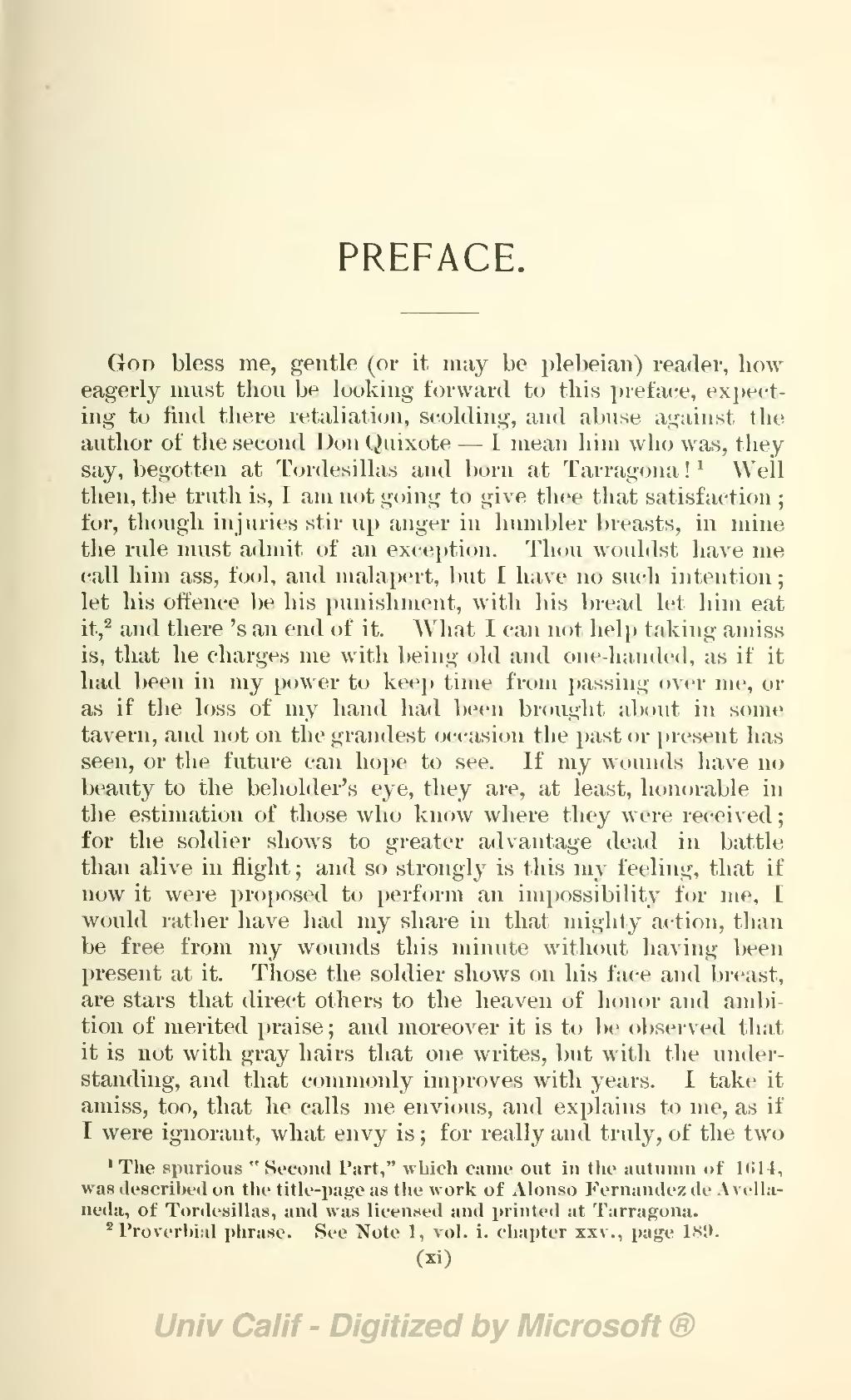PREFACE.
God bless me, gentle (or it may be plebeian) reader, how eagerly must thou be looking forward to this preface, expecting to find there retaliation, scolding, and abuse against the author of the second Don Quixote—I mean him who was, they say, begotten at Tordesillas and born at Tarragona![1] Well then, the truth is, I am not going to give thee that satisfaction; for, though injuries stir up anger in humbler breasts, in mine the rule must admit of an exception. Thou wouldst have me call him ass, fool, and malapert, but I have no such intention; let his offence be his punishment, with his bread let him eat it,[2] and there's an end of it. What I can not help taking amiss is, that he charges me with being old and one-handed, as if it had been in my power to keep time from passing over me, or as if the loss of my hand had been brought about in some tavern, and not on the grandest occasion the past or present has seen, or the future can hope to see. If my wounds have no beauty to the beholder's eye, they are, at least, honorable in the estimation of those who know where they were received; for the soldier shows to greater advantage dead in battle than alive in flight; and so strongly is this my feeling, that if now it were proposed to perform an impossibility for me, I would rather have had my share in that mighty action, than be free from my wounds this minute without having been present at it. Those the soldier shows on his face and breast, are stars that direct others to the heaven of honor and ambition of merited praise; and moreover it is to be observed that it is not with gray hairs that one writes, but with the understanding, and that commonly improves with years. I take it amiss, too, that he calls me envious, and explains to me, as if I were ignorant, what envy is; for really and truly, of the two
- ↑ The spurious "Second Part," which came out in the autumn of 1614, was described on the title-page as the work of Alonso Fernandez de Avellaneda, of Tordesllas, and was licensed and printed at Tarragona.
- ↑ Proverbial phrase. See Note 1, vol. i. chapter xxv., page 189.
(xi)
